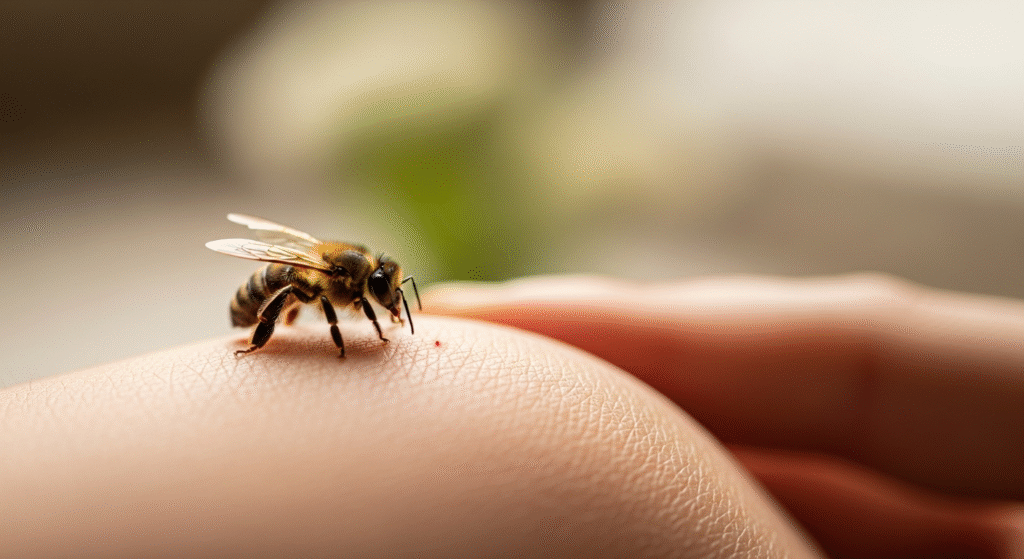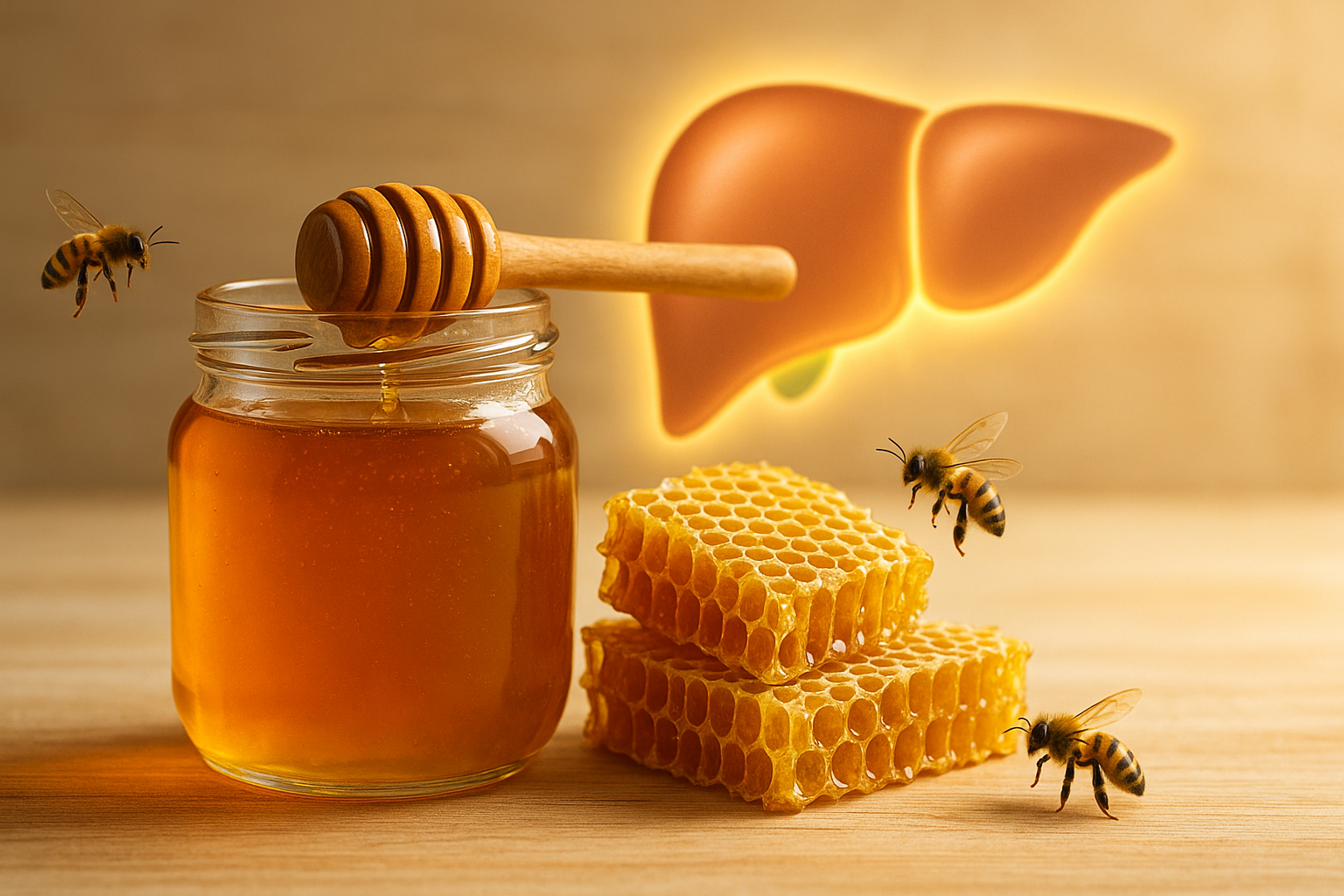The liver is one of the organs that works the hardest in the body. It cleans the blood, gets rid of toxins, and helps break down food. People all over the world use a lot of natural remedies to keep their livers healthy. Honey and bee venom therapy is one of the most talked-about treatments right now. Let’s look into what science says about these natural substances and how they are thought to help the liver.
1. Honey
People have used honey as food and medicine for thousands of years. It has antioxidants, vitamins, and enzymes that help the body fight free radicals, which are bad for you. These free radicals can hurt liver cells and cause diseases like fatty liver disease.

Some studies show that pure, natural honey can help the liver heal after damage from alcohol, drugs, or infections and lower inflammation in the liver. One of the main causes of liver damage is oxidative stress, and honey’s natural sugars and plant compounds may help lower it.
People in different countries, especially in parts of Africa, Asia, and the Middle East, drink raw honey every day or mix it with warm water or lemon as a natural detox drink. People think it cleanses the liver and helps with digestion.
But not all honey is the same. Honey that has been processed or mixed with sugar loses most of its healing properties. Always use raw, unprocessed honey from reliable local sources for health reasons. It’s also important to remember that honey is good for your liver, but it won’t cure liver diseases on its own.
2. Bee Venom Therapy
Another bee product that has gotten a lot of attention in natural medicine is bee venom, which is also called apitoxin. Bee venom therapy is used in some cultures, especially in traditional Korean, Chinese, and African healing practices, to ease pain, swelling, and even help the liver stay healthy.

Melittin and apamin are two proteins and enzymes in the venom that are very good at reducing inflammation and boosting the immune system. These substances may help keep liver cells safe from toxins and lower the amount of scarring that chronic liver diseases cause. Some small studies show that bee venom can help liver cells grow back and balance liver enzymes in people with certain conditions.
You can get bee venom therapy through controlled bee stings or by using bee venom creams and injections with the help of a professional. Some people may have serious allergic reactions to bee venom, so it’s important to remember this. So, you should never try it at home without a doctor’s advice.
Both honey and bee venom seem to be good for the health of the liver. They have natural ingredients that may help lower inflammation in the liver, protect cells, and help the body get rid of toxins. But you shouldn’t use these remedies instead of medical treatment; they should only be used as extra help.
Talk to your doctor or a trained apitherapist before using honey or bee venom to improve your liver health. Nature has strong tools for healing, but it’s important to use them safely and get professional advice.
In short, the buzz about honey and bee venom isn’t just hype; it’s a reminder that even the smallest animals can be good for our health.




